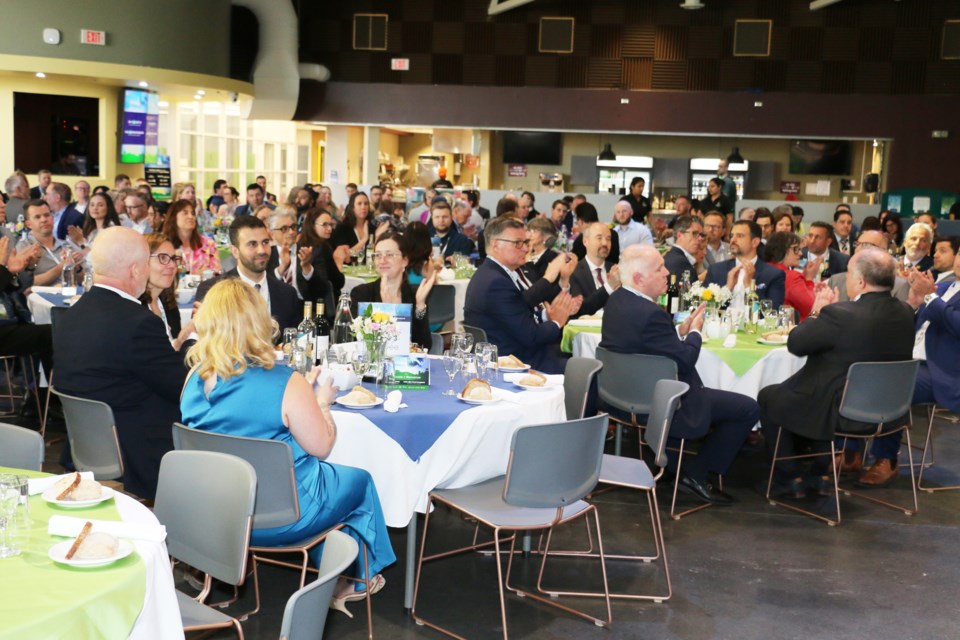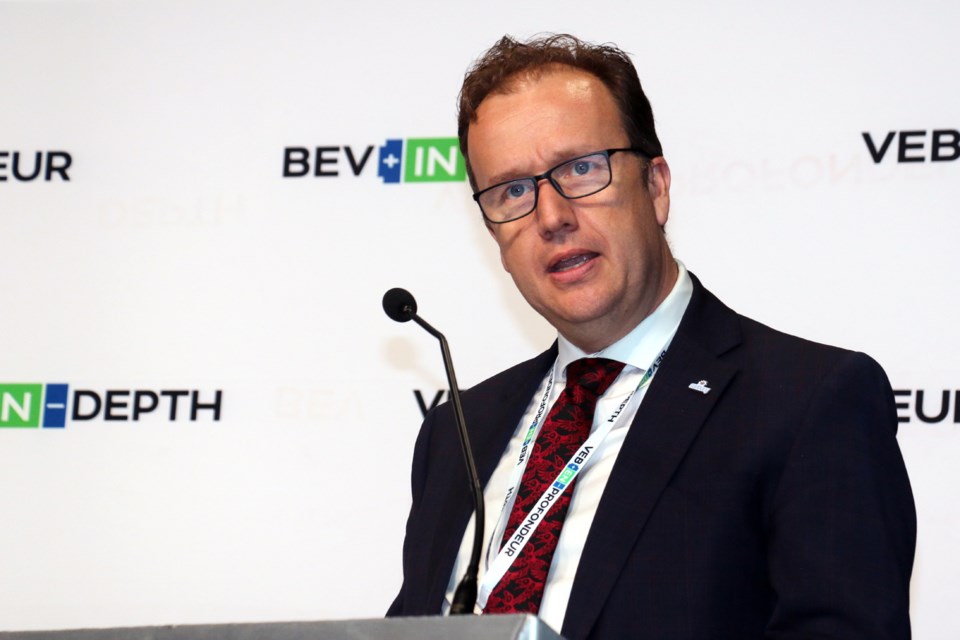The transformation of the auto and mining industries towards battery electric vehicles is something that has pushed Sudbury into a new era of technology and expertise according to Mayor Paul Lefebvre, who was a keynote speaker at the opening of the two-day conference exploring the importance of battery electric vehicles (BEVs).
"Today, we stand on the cusp of a transportation revolution. Our mining sector strength and expertise are more relevant than ever," Lefebvre told the audience of battery electric supply representatives, mining supply reps, educators and entrepreneurs.

"What better place to discuss the future of battery electric vehicles than right here in Greater Sudbury?" said the mayor.
Sudbury is not merely a participant in the battery electric excitement, he said.
"We are leaders and innovators, shaping the future of energy and transportation," said Lefebvre.
He made reference to the mid-week announcement where Wyloo Metals entered into a memorandum of understanding (MOU) with the City of Greater Sudbury, with support for nearby Indigenous communities, to build a battery materials processing facility. The city will provide Wyloo with a parcel of land for that plant.
Wyloo CEO Canada Kristan Straub said the new Sudbury facility would provide the missing piece in Canada’s aspirations to develop a domestic EV battery supply chain, by producing low-carbon nickel sulphate and nickel-dominant pCAM (precursor cathode active material), key ingredients for EV batteries.
The Wyloo news release said it is currently completing a scoping study for the Sudbury project, with construction of the facility expected to begin after the construction of its proposed Eagle’s Nest mine (Ring of Fire). Mine construction is targeted to begin in 2027.
Although the news of the MOU was cause for excitement at the BEV In-Depth conference, MOUs are known in the mining sector as a serious declaration of intent to move forward on a project but are not legally binding.
Still, Lefebvre said this puts Sudbury in a key position to attract more industry not just related to mining but for the development of sustainable energy solutions.
"Our city is home to some of the most important mineral deposits in the world, essential components for the production of high performance batteries," said Lefebvre, who added that Sudbury is more than mining.
"Our local expertise extends beyond resource extraction. We have a thriving community of researchers, engineers and entrepreneurs who are pushing the boundaries of what is possible in the field of battery technology," he said.
Lefebvre also mentioned the importance of the MOU being co-signed by Larry Roque, chief of Wahnapitae First Nation and Craig Nootchtai, chief of Atikameksheng Anishnawbek First Nation.
He said this was an indicator that future conversations and collaboration with First Nations communities must take place. Lefebvre said he was proud to see that it happened.
“And it gives me great confidence that, together, we will be able to achieve real progress towards reconciliation with the First Nations as true partners at the table, and also should send an important signal to the many industry stakeholders here today,” said Lefebvre.
Len Gillis covers mining and health care for Sudbury.com.




